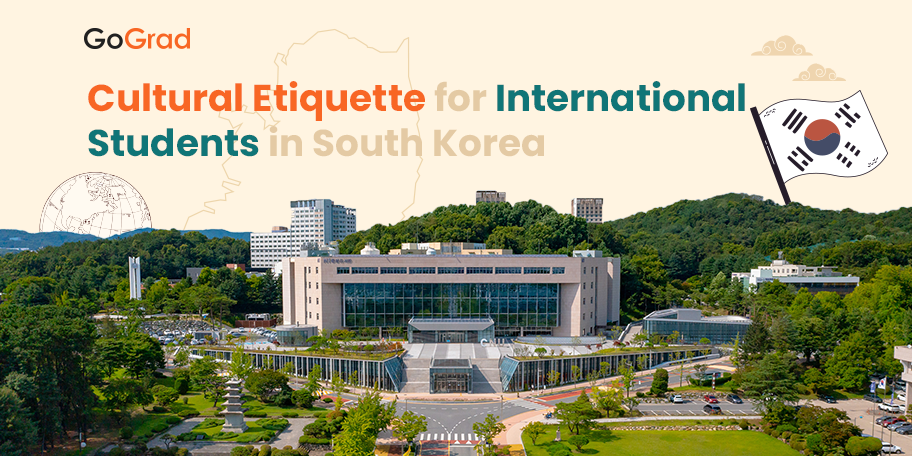
For international students studying in South Korea, understanding and respecting cultural norms is essential for building positive relationships, avoiding misunderstandings, and fully integrating into society. South Korea places a strong emphasis on respect, harmony, and consideration, making it vital for students to familiarize themselves with these values.
Language and Polite Communication
Language is a cornerstone of South Korean culture, and how you communicate often reflects your level of respect for others. Politeness is highly valued, particularly when addressing elders, professors, or those in positions of authority. Using honorifics is an important part of respectful communication. Adding “-nim” after someone’s name or title, such as “선생님” (teacher) or “사장님” (business owner), signals your awareness of cultural customs.
Bowing slightly when greeting someone, especially in formal or professional contexts, is another essential gesture of courtesy. Maintaining a calm and respectful tone, avoiding overly animated gestures, and actively listening during conversations also contribute to positive interactions. Even if your Korean language skills are limited, using polite phrases like “감사합니다” (thank you) and “죄송합니다” (I’m sorry) can go a long way in building goodwill.
Respect for Elders
Respect for elders is a fundamental value in South Korea and is reflected in many aspects of daily life. Older individuals are deeply respected, and showing deference to them is a societal expectation. When offering or receiving items—whether gifts, documents, or even a simple drink—always use both hands, as this is a sign of respect.
During meals, it is customary to wait until the eldest person at the table begins eating before starting your own meal. When pouring drinks, serve elders first, and use both hands to hold the bottle. These practices demonstrate a deep respect for hierarchy and are important to observe in both formal and informal settings.
Dining Etiquette
Dining in South Korea comes with a rich set of traditions, many of which are rooted in respect and communal harmony. One crucial rule to remember is to never stick your chopsticks upright into a bowl of rice, as this gesture resembles a ritual associated with funerals and is considered disrespectful.
Sharing food is a common practice during meals, with dishes served family-style. Use communal utensils, such as serving spoons or tongs, to take portions for yourself. Before beginning a meal, it is polite to say “잘 먹겠습니다” (I will eat well), and after finishing, express gratitude by saying “잘 먹었습니다” (I ate well). When pouring drinks, hold the bottle with both hands, particularly when serving elders or superiors. Similarly, when receiving a drink, support the glass with one hand and hold it with the other.
Appearance and Dress Code
Appearance is highly regarded in South Korean culture, and maintaining a neat and polished look is important in both social and professional settings. For formal occasions, such as academic presentations or ceremonies, dressing professionally is expected. Men should opt for suits or tailored slacks paired with a dress shirt, while women often choose dresses, skirts, or slacks paired with a blouse.
In casual settings, stylish yet modest clothing is the norm. Ripped jeans, overly revealing outfits, or gym wear are generally avoided in semi-formal or professional environments. Ensuring you are well-groomed and presentable demonstrates respect for yourself and others, which is a value deeply ingrained in South Korean society.
Gift Giving Traditions
Gift giving is an integral part of South Korean culture, symbolizing appreciation, goodwill, and respect. Whether visiting someone’s home, attending a celebratory event, or expressing gratitude, bringing a thoughtful gift is customary. Small items, such as snacks, flowers, or souvenirs from your home country, are often appreciated.
When giving a gift, present it with both hands to show sincerity. Similarly, when receiving a gift, accept it with both hands as a sign of gratitude. Avoid opening the gift in front of the giver unless prompted to do so, as this demonstrates modesty and respect for the giver’s intentions.
Punctuality and Time Management
Punctuality is highly valued in South Korea and is seen as a reflection of professionalism and respect for others. Whether you are attending class, meeting friends, or participating in a formal event, arriving on time—or even a few minutes early—is expected. Being late can be interpreted as inconsiderate or unprofessional, so plan ahead to avoid delays.
If you anticipate being late, communicate promptly with the concerned party and apologize sincerely for the inconvenience. For academic and professional commitments, punctuality underscores your dedication and reliability, making it an important habit to cultivate.
Summary
Adapting to South Korea’s cultural etiquette is an essential step for international students looking to thrive in their new environment. By embracing respectful communication, honoring elders, observing dining traditions, maintaining an appropriate appearance, practicing thoughtful gift giving, and valuing punctuality, you can integrate seamlessly into South Korean society.
These practices not only help avoid misunderstandings but also foster meaningful connections with locals, classmates, and colleagues. By showing appreciation for South Korean values and traditions, you enrich your academic and personal journey, making your time in South Korea both successful and memorable.

